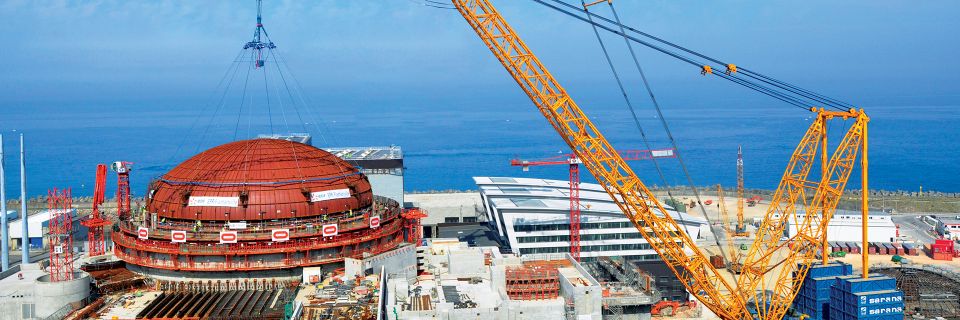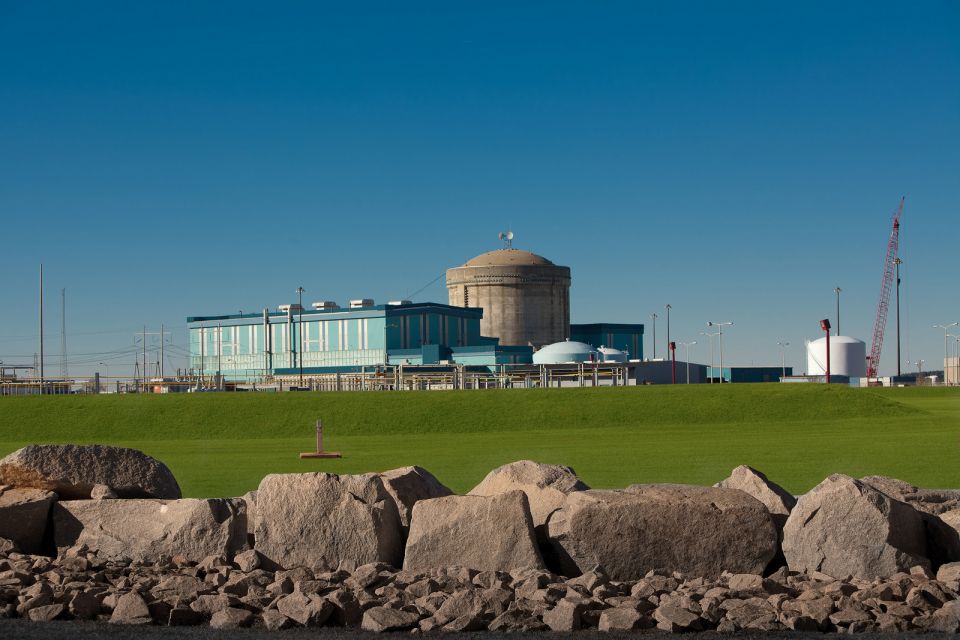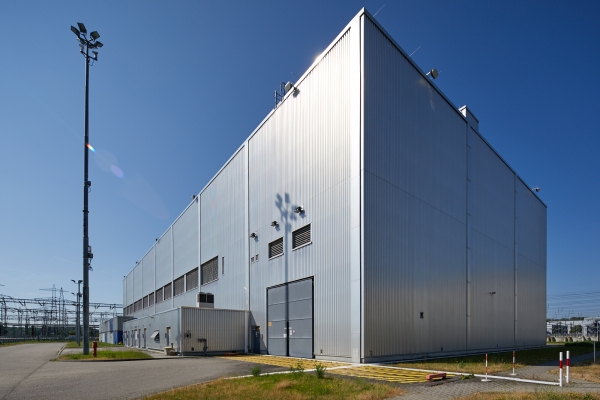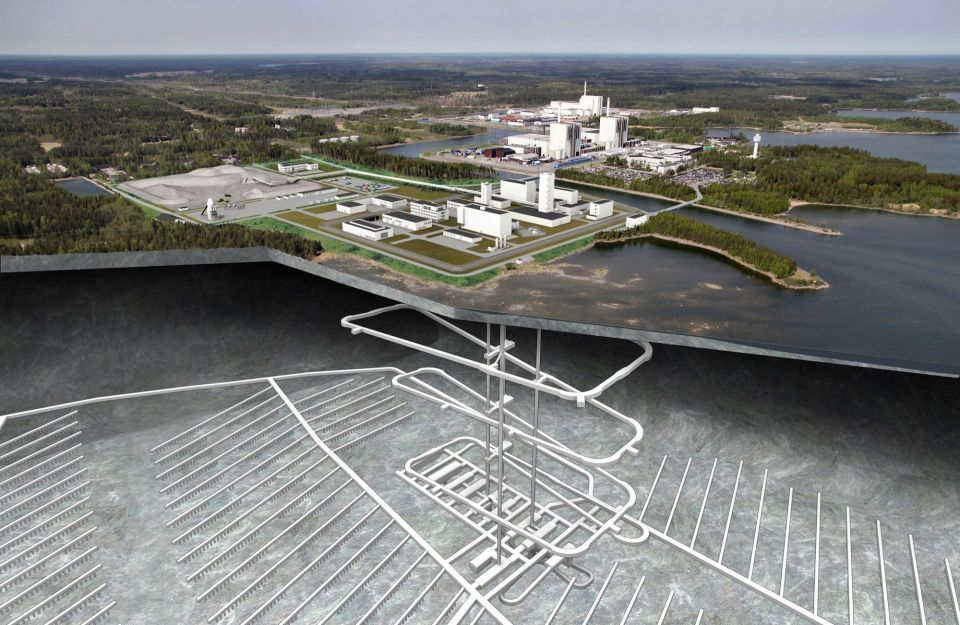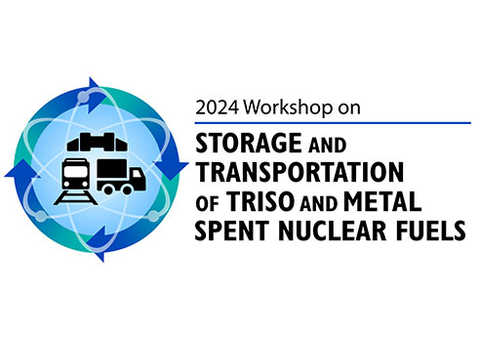Surface storage of used nuclear fuel - safe, cost-effective, and flexible
In August 2014, the U.S. Nuclear Regulatory Commission approved NUREG-2157, Generic Environmental Impact Statement for Continued Storage of Spent Nuclear Fuel. That action was the end result of several years worth of detailed analysis of the known and uncertain impacts of storing used nuclear fuel on the earth's surface in licensed and monitored facilities.
As summarized in section 8 of the document, the staff determined that the environmental impact under expected conditions is small and acceptable even for an indefinite period of time. The analysis included consideration of a complete societal breakdown and loss of institutional control and determined that this situation would have an uncertain effect on the safety and security of used nuclear fuel, but determined that there is little likelihood that society will falter that much.
NUREG-2157 both eliminates the hold that was placed on issuing new or renewed nuclear facility licenses and it provides the technical basis supporting a decision to stop working on a geologic repository. If storing used material on the surface is acceptably safe, environmentally sound, and cost-effective for the foreseeable future, it would be a waste of resources to attempt to develop a facility using today's technology. It is likely that technology will improve in the future. It is inevitable that the material of interest will become easier to handle as the shorter-lived, more active components decay at a rate established by physical laws.
NRC Chairman Allison Macfarlane wrote the following perceptive statement in her comments about her vote on the rule:
In essence, the GEIS concludes that unavoidable adverse environmental impacts are "small" for the short-term, long-term, and indefinite time frames for storage of spent nuclear fuel. The proverbial "elephant in the room" is this: if the environmental impacts of storing waste indefinitely on the surface are essentially small, then is it necessary to have a deep geologic disposal option?
Almost exactly right! We should ask hard questions of those who maintain that "deep geologic disposal is necessary" because "a majority of the public industry, academia, and regulators" say it is. Here are some questions worth asking:
- Why do you think a mined deep geologic repository is required?
- What makes it so important?
- Where is the recorded vote on which you base your claim that it is the majority opinion?
- If there was a vote, when was that vote taken?
- Have there been any changes in circumstances that challenge the validity of that determination?
- Should options besides a mined deep geologic repository be reconsidered?
- How much will it cost each year to simply defer action into the indeterminate future?
- From an accounting perspective, aren't costs that are deferred far into the future worth less, not more, if they are recalculated into today's dollars?
Those who have read Macfarlane's full comment should recognize that she is not only the source of the "elephant in the room" statement above, but she is also the source of the assertions that the United States must continue pursuing a mined geologic repository because we have a "long-established responsibility to site a repository for the permanent disposal of spent nuclear fuel," and she wants to make sure that the NRC's determination that continued surface storage represents a small environmental impact for the indefinite future does not enable "avoiding this necessary task."
Last week, I had the opportunity to ask Chairman Macfarlane if she thought that the NRC had a role in deciding U.S. policy on long-term nuclear waste storage. She explained that the only role for the NRC would be to review the license application submitted for any specific facility. The responsibility for planning and developing that facility and obtaining the funds necessary would be under the purview of a different agency.
I asked what the NRC's role should be if no organization submits an application for a facility. She admitted that its only role in that case would be to continue monitoring existing facilities and approving license renewals or new licenses.
Congress can, and should, make a determination that the plan for nuclear waste for the indefinite future is to continue safely storing used material. It should remove the responsibility for permanent disposal of nuclear waste from the Department of Energy and put it into industry's hands to solve. Of course, the industry will remain under the watchful eye of the already established federal regulator using procedures and processes that are already in place and continually being refined. It should make use of existing products and services, continue improving those offerings and should consider the need for facility consolidation as that makes economic sense.
Macfarlane and I also agree about when we would begin to believe that the United States can site, license, build, and operate a mined deep geologic repository, as she said:
I will have confidence in the timing when a renewed national consensus emerges on a repository for spent nuclear fuel.
(Emphasis added.)
There is no reason to suspect that a sufficiently bulletproof consensus will ever exist. Recent history has proven that it takes just a handful of people elected or appointed into the right positions to derail even the best laid plans made with strong support throughout the rest of the country.
Though Macfarlane seems concerned about the potential impact if there is a "loss of institutional control," the controls required to ensure continued safety and environmental protection from used nuclear fuel are simple and easily implemented. As long as we do not believe that future generations will forget how to read, we can be sure enough that they will remember how to keep used nuclear fuel safely isolated.
Many people in Chairman Macfarlane's generation-which is also my generation-probably believe at least some of the many entertainment products depicting that there is going to be an inevitable dystopia in the future. Those fictional predictions of the future might have made for good reading or viewing, but they are as useful a decision tool as any other wild fiction. Even if their fanciful dystopia becomes reality, used nuclear fuel will be low on the prioritized lists of risks.
Macfarlane has expressed some concerns about the financial responsibility associated with continued storage of used nuclear fuel. Establishing bonds or other forms of continued financial surety is a common business practice. Radioactive materials are not uniquely hazardous or even uniquely long-lived compared to other elements and compounds in common industrial service. We have learned to live with them. We have proven that we know how to protect the public from any harm. There is no reason to expect that society will forget the lessons it has already learned.
A simple financial solution would be to have nuclear plant owners establish a used fuel fund that would be as isolated from their normal finances as their decommissioning funds. The experience that we have with the current Nuclear Waste Fund shows that a tiny fee on each unit of nuclear electricity will grow into a very sizable fund if undisturbed over time. We should stop stealing the capital accumulated by such a fee to pay for other continuing government expenses and we should not fritter it away by conducting geologic studies of the depths under any region that has the proven potential to produce politically powerful majority leaders. (Nearly every state in the union has that potential given the longevity of any proposed repository program.)
In the conclusion of her seven page comment, Macfarlane included the following statement:
Finally, I note that at least one commenter has suggested that development of a repository in the U.S. has developed into a Sisyphean task. I agree that much in the national management of spent fuel and development of a geologic repository over the past decades fits this analogy.
Once again, I agree with Macfarlane's description of the current situation associated with attempting to site a single geologic repository in the United States.
Americans must remember that we are not subjects of Greek gods condemned to continue the frustratingly impossible task of pushing a rock uphill every day just to have it roll back down at the end of the day. We are free members of a society that has the ability to make choices and to change its mind to adapt to new situations or when new information is revealed. The cancellation of Yucca Mountain through actions of a tiny group of people shows that successfully siting a repository in the United States, with its multiple interest groups and arcane procedural rules, is not possible.
The good news is that we don't need a repository in order to operate nuclear power plants safely and to store the created residues in a way that produces negligible environmental impacts. We don't need a government program that can be milked for assets and jobs for decades before being derailed. We don't need to have the federal government-which means us, as taxpayers-pay the costs of continued storage; the costs are predictable and can be paid with a small fee on each unit of power generation.
Making the choice to quit now and spend our limited resources on something more useful must not be judged as unfair to future generations. Used nuclear fuel has potential value, and we can create savings accounts now that can enable a different long-term solution in the distant future when there is more general agreement that constipating nuclear energy would be a suicidal course of action for society.
As technology improves, assets build up in the coffers of responsible parties, nuclear power plant sites continue to be developed, nuclear power plant sites occasionally become repurposed, and the demand for nuclear fuel changes, future societies can change their mind. Nothing in the above plan precludes any choices for the future; the key action needed today is to stop digging the hole that currently seems to provide no possibility for escape.
 Rod Adams is a nuclear advocate with extensive small nuclear plant operating experience. Adams is a former engineer officer, USS Von Steuben. He is the host and producer of The Atomic Show Podcast. Adams has been an ANS member since 2005. He writes about nuclear technology at his own blog, Atomic Insights.
Rod Adams is a nuclear advocate with extensive small nuclear plant operating experience. Adams is a former engineer officer, USS Von Steuben. He is the host and producer of The Atomic Show Podcast. Adams has been an ANS member since 2005. He writes about nuclear technology at his own blog, Atomic Insights.


